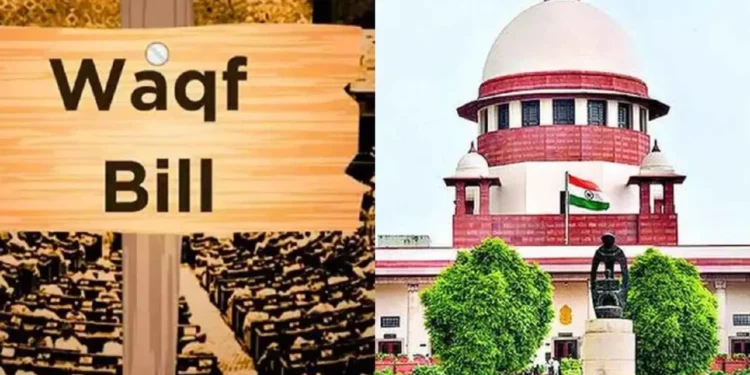Lagatar24 Desk
New Delhi: The central government on Wednesday told the Supreme Court that waqf is a form of charity and not an essential part of Islamic practice. Solicitor General Tushar Mehta, appearing for the Centre, argued that waqf boards perform secular functions and that the management of religious endowments—unlike temples which are purely religious—can be overseen by members of any community.
“Waqf is not essential to Islam”
“Waqf is nothing but charity. It is an Islamic concept but not essential to Islam,” Mehta told a bench comprising Chief Justice BR Gavai and Justice Augustine George Masih. Drawing parallels with Hindu, Christian, and Sikh traditions of charity, he asserted that the concept of religious charity is universal. “Hindus have daan, Sikhs have their own system. Charity exists in every religion,” he said.
Centre defends latest amendments
Defending recent amendments to the Waqf law, Mehta said the government was correcting long-standing issues that even colonial and post-independence regimes failed to resolve. “We were eradicating a menace that existed since 1923. Every stakeholder was heard—36 Joint Parliamentary Committee sittings were held, and 96 lakh representations were received,” he said.
Waqf-by-user not a fundamental right
The Solicitor General argued that the now-scrapped ‘waqf-by-user’ clause, which allowed property to be deemed waqf based on prolonged religious or charitable use without documentation, was legally problematic. “Nobody has a right over government land. Waqf-by-user is not a fundamental right,” he said, clarifying that only registered waqf claims, particularly involving private or pre-identified government land, would now be considered.
SC earlier reaffirmed legislative protection
The Supreme Court had earlier remarked that laws passed by Parliament carry a presumption of constitutionality. “There is a presumption of constitutionality in favour of every statute. For interim relief, you must present a glaring case,” Chief Justice Gavai said during Tuesday’s session when senior advocate Kapil Sibal began arguments for the petitioners.
Centre wants limited scope in hearings
The Centre has asked the apex court to confine the hearings to three main issues: the waqf-by-user principle, the nomination of non-Muslims to Central and State Waqf Boards, and the identification of government land as waqf. The petitioners, however, argue that broader constitutional concerns must be addressed.







